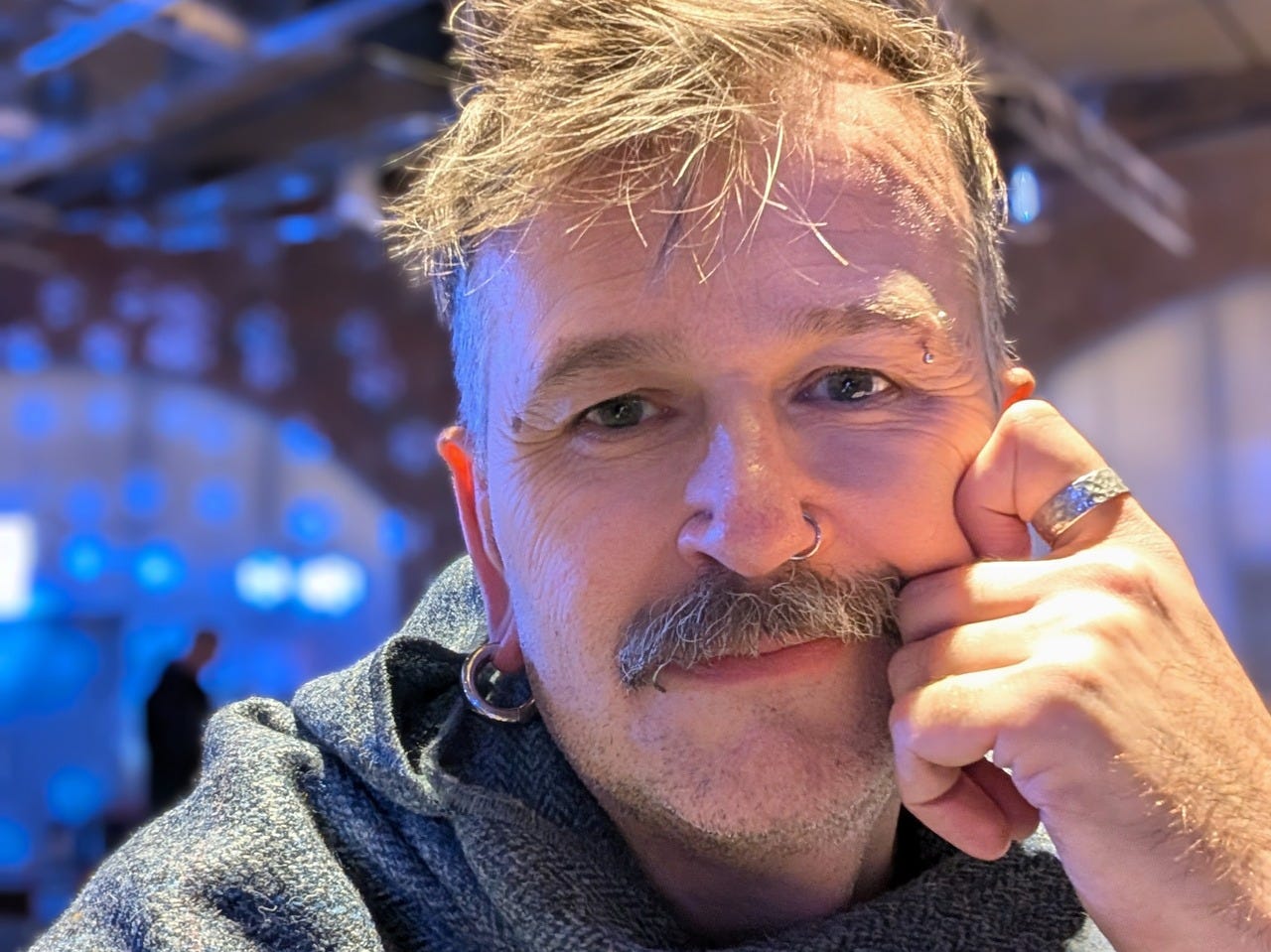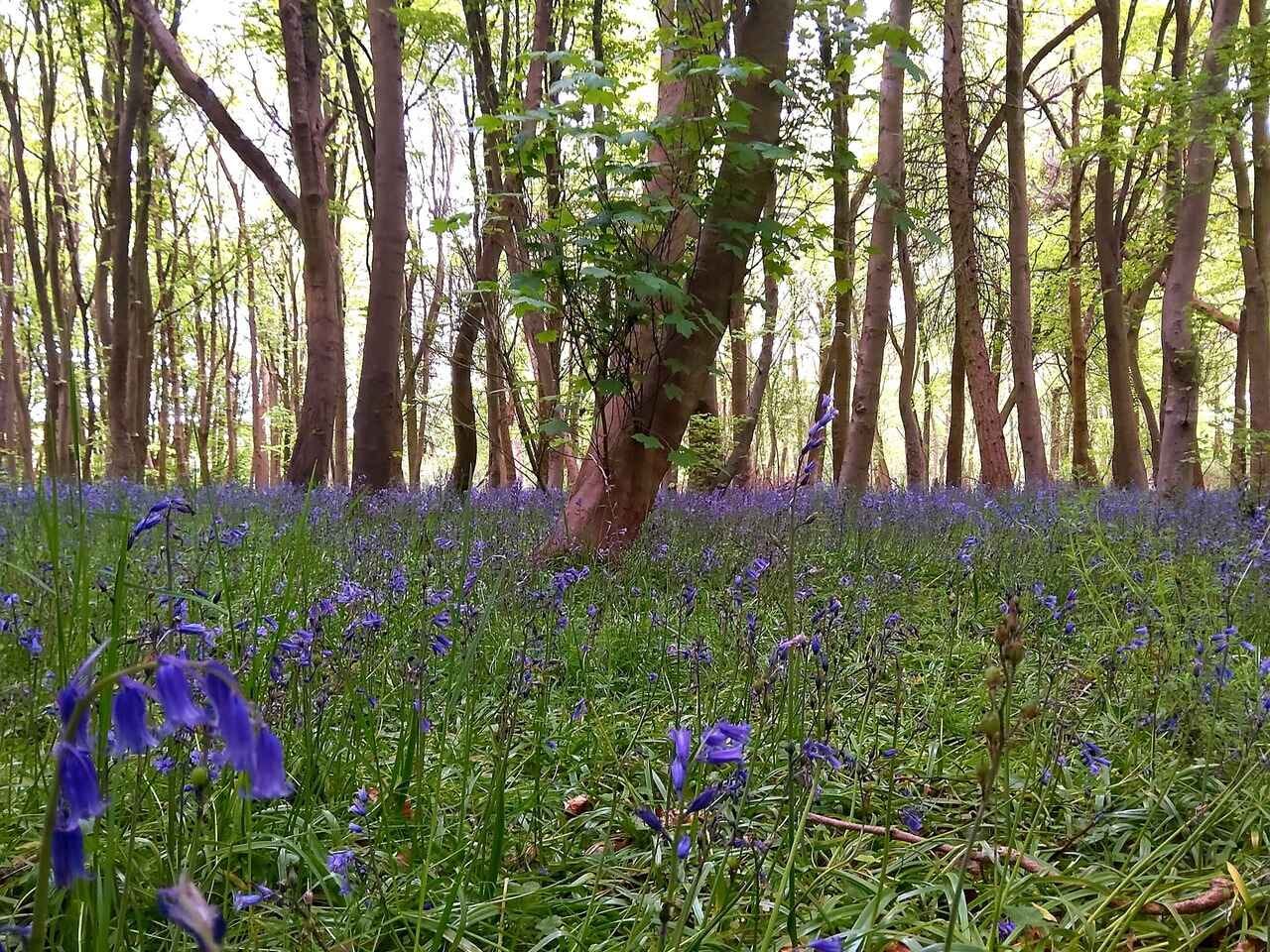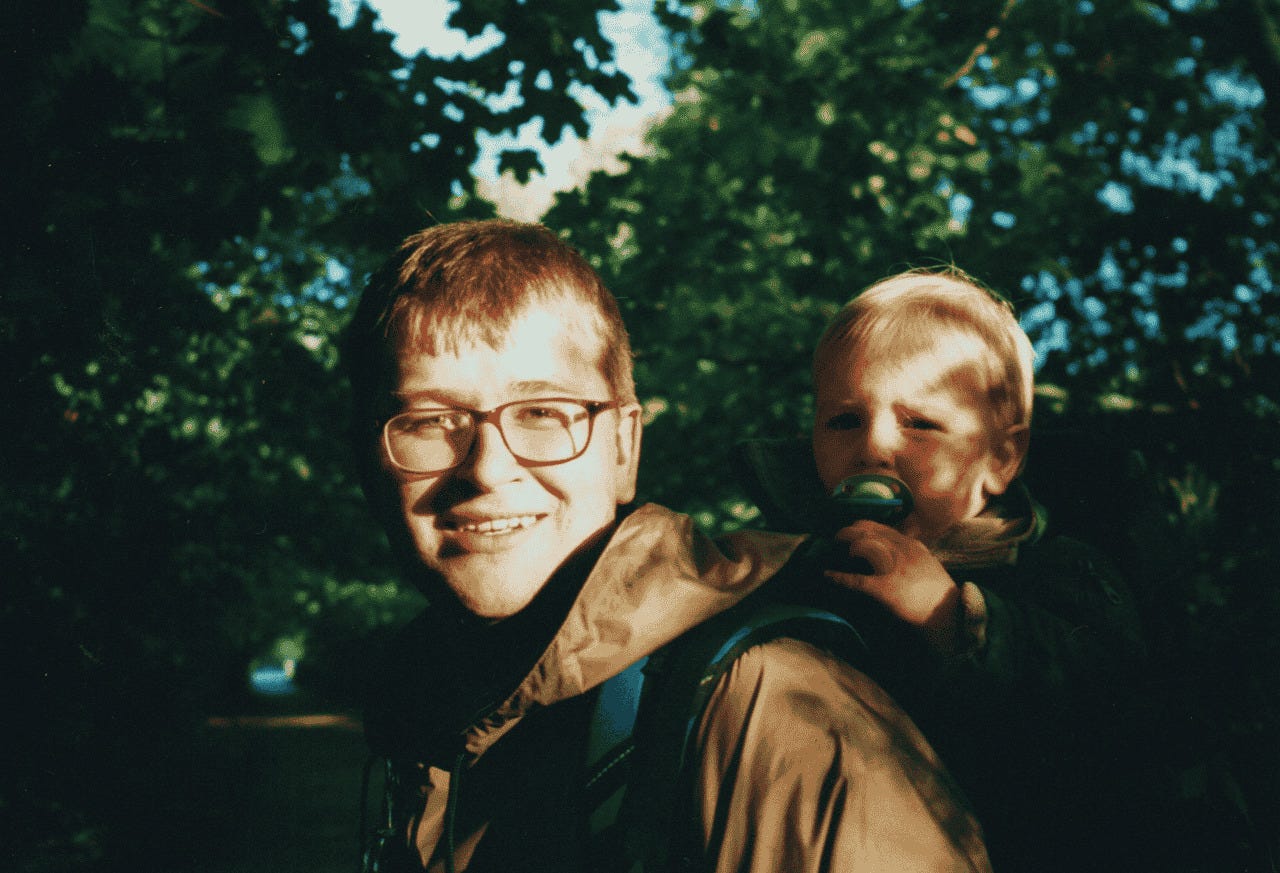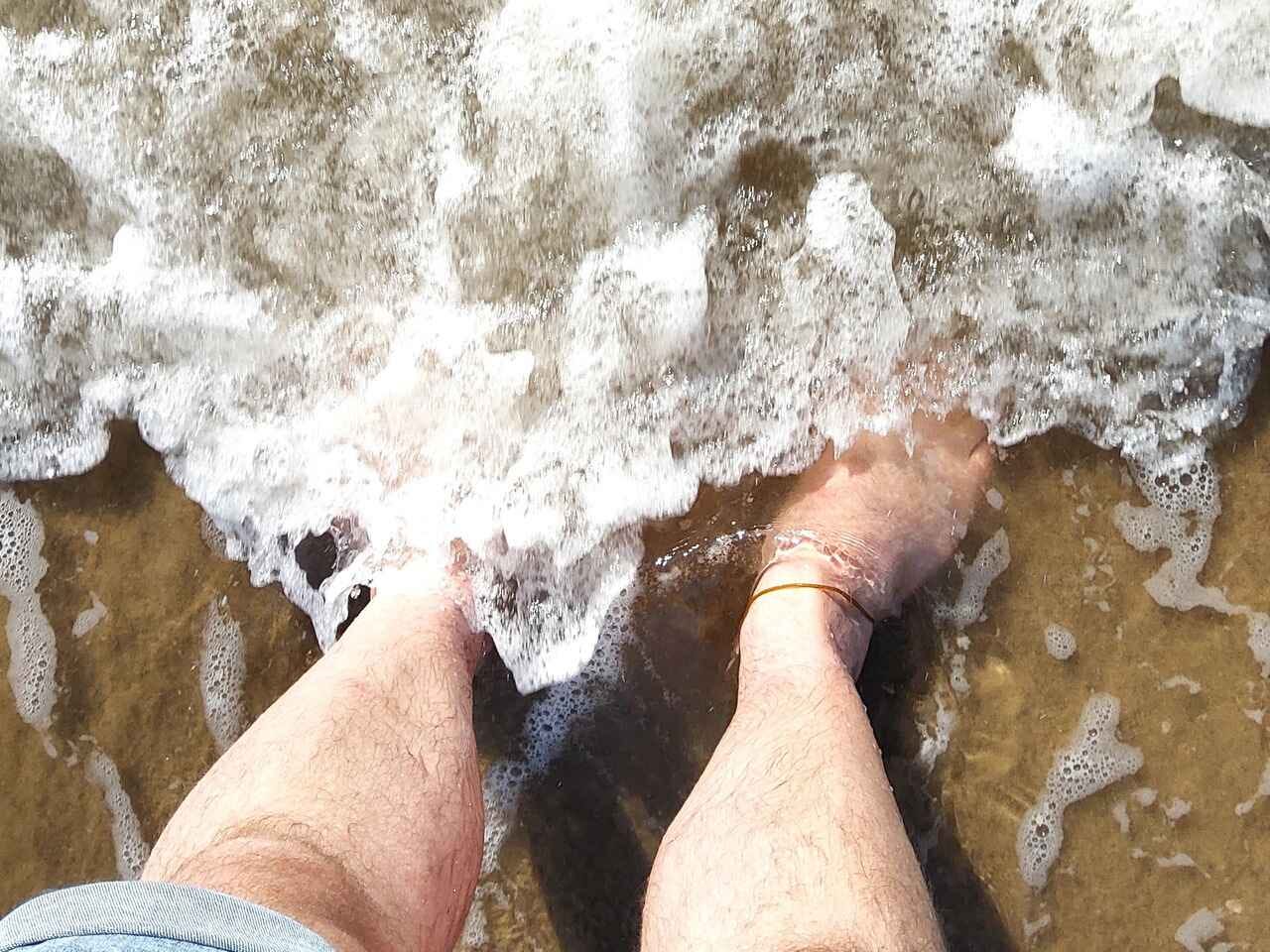I’m told I took my first steps at ten months old; I was obviously keen to get going. It’s just over fifty years since I started walking. More than half a century later, I think it’s about time I stopped to look back.

I want to tell you about my walking life and the path that led me to writing Pilgrimagic. But before we get there, I need to explain why it’s difficult for me to tell the story at all.
Living without memory
My memory has always been a curious thing. I’m a sponge for facts and trivia, so you definitely want me on your pub quiz team. But I also have a condition known as severely deficient autobiographical memory (SDAM), which means I can’t mentally time travel to re-experience events in my personal history. If you ask me about something that happened in my childhood or even last week, I may be able to access bare facts about what happened. But beyond that, without external prompts, my mind is a total blank.
I’d joke and say my memory’s been that way for as long as I remember. But as far as anyone knows, SDAM is a life-long condition. It’s a difference in the way my brain works, alongside my multi-sensory aphantasia, which means I can’t see pictures, hear music or smell scents in my mind.
SDAM and aphantasia can be real deficits. Trying new food combinations is a crapshoot because I can’t imagine what anything tastes like. Trauma flashbacks are like standing in the dark, being screamed at by silent, angry ghosts as my heart races. If I close my eyes, I can’t see the faces of the people I love.
SDAM means I also have a sketchy sense of myself through time. I hadn’t always known my brain was different, and I didn’t know I needed to put in extra work to remember. So, there are big blanks in my personal history and whole years about which I recall nothing at all.
As I’ve learned more about myself, I’ve adapted to life with an atypical memory and imagination. My SDAM and aphantasia prompt me to journal, to document and to photograph. They are a big part of why I write; words are essential to remembering who I am.
I make myself in the sentences I craft. I continually reconstruct my past with facts I recall, photos I’ve taken and stories I’ve told myself, some of them half-remembered and many of them disjointed or only loosely hanging together. I may be an unreliable narrator in the story of my own life, or perhaps I’m engaged in an ongoing project of personal archaeology, but I’ll never know for sure. But that might be true for all of us.
In the end, I think we’re all just stories that we tell each other.
Childhood walks
“Where are you from?” is always a tricky question. My family moved around a lot when I was a child, so I don’t have a home town. “Who are you from?” is easier to answer, though. My father’s fathers were miners from the hills of Warwickshire. My mother’s mothers laboured in apple orchards alongside the pilgrim paths of Kent. If I have roots anywhere, they are in my ancestors’ lives.
My childhood memories are sketchy, but I do know that there was a big hill behind one of the houses I grew up in. Beyond the old railway tracks, there were golden wheat fields, bluebell woods, paths for bike riding, and an ancient chalk quarry for building dens. I was a child of the 1970s, regularly thrown out of the house and trusted to come home from my adventures. There were street parties, water fights, brown jumpers, TV shows, and teas of mince and boiled cabbage.
That childhood ended when my mum died suddenly. I was nine years old. Within six months, I had moved with my dad and his new partner to the intense heat and unfamiliar surroundings of a Middle Eastern city. Uprooted to a new land and isolated by my grief, I had lost not just my mum but my friends, my home, and my sense of who I was.
I became a lonely and anxious teenager, and walking was a solace. Visiting my grandmother in the Suffolk countryside, I’d disappear for hours on end, exhausting myself as I wandered along country lanes in search of nothing in particular. But there was contentment here, too, discovering trees, lying in soft grass by the river, and feeling the gentle sun on my skin. At times, I was happy again.
Walking in my 20s
My friend Chris once observed that my life moved in decade-long cycles, with upheavals at the end of each. The transition from my teens into my 20s saw me swept up into a religious community, separated from my remaining family and pushed into conversion therapy. My sketchy memories were manipulated and distorted, as dark reasons for my gayness were sought and prayed away. I went through hell, but still, I felt like I had found the home I craved.
Looking back, this is the period of my life that I understand the least. I was so dislocated from my sense of self that I earnestly believed my best choice was to erase myself in order to be loved. I could be part of something, but only if I became someone else entirely. I didn’t understand then that community can be unconditional, and that coercion and control are not the same as acceptance and belonging.
Yet, in the turmoil and confusion, there were periods of peace. I love this sweet photograph of a Lake District ramble with my young son on my back. There were walks in the park, adventures on beaches and swimming in rivers. I found poetry, philosophy, and a sense of wonder at the universe. A love of mystery was born in me.
But my fragile life crumbled when I could no longer sustain the discontinuity between my inner and outer worlds. One unremarkable Sunday afternoon, I stumbled on Mary Oliver’s poem The Journey on a garden centre bookshelf. “One day,” she wrote, “you finally knew what you had to do, and began…”
Later that evening, I left my marriage.
Walking in my 30s
I sometimes think that I’m living life out of order. I spent my 20s pretending to be straight and in my 40s, and my 30s were the queer teenage years I’d never had. This decade was a riot.
Life took me to London. Flat broke but brimming with the potential of an unlived life, I walked everywhere. For a long time, I worked near Oxford Circus, and I’d walk more than an hour to my office every day, crossing the Thames each morning and winding my way through the back streets of Soho.
To this day, I love walking in cities. There is so much to see, especially if I turn away from the busiest streets to explore alleyways and narrow passages. These were the years that taught me to look up, appreciate the intricate architecture above glass-fronted shops and admire the graceful arching of urban trees. I explored commons, pocket parks and wild edges. Out of the city, there were walking holidays, field trips, and hill climbs. I was finally finding my feet.
Undoing the religious indoctrination of the previous decade took longer. I tried to reconcile the remnants of my faith with the life I was living but eventually abandoned the effort entirely. I found humanism and the alluring certainty of rational atheism. But slowly, my wonder at the universe was dying. I could not sustain a life without mystery.
Walking in my 40s
My 40s began with me sitting on my sofa in the same pyjamas I’d worn for days. I had spent the previous decade papering over the cracks and fault lines of life, so perhaps it was inevitable that things would fall apart. Anxiety and depression had broken me.
My recovery was slow. I dug borders in a community garden, and as my energy returned, I walked in search of answers. Eventually, a moment of reconnection in the birch woodland of Holme Fen set me on a new path. I immersed myself in the work of getting to know myself, finding a spirituality that could sustain me, and locating myself in the web of life. Over time, I trained as a nature connection facilitator, coach, and mindfulness teacher, studied people’s relationships with places they loved, and embraced the mysteries of druidry and magic. I learned to walk slowly, to see beyond the obvious and to journal my experiences.
My 40s were also the decade in which I first understood myself as a pilgrim. Staring up at the Milky Way, I felt the earth turn beneath my feet. My feelings of rootlessness were nothing compared to the planet’s journey, spinning through the universe. In each hour of my life, it had carried me 50 million kilometres away from the place of my birth. Even if I had never moved, I would always have been a wanderer.
But giving myself wholly to wandering meant letting go of the little certainty I had. I left my job, sold almost everything I owned, and gave back the keys to my rented flat. For almost three years, I surrendered to the task of reimagining my life. I walked with my ancestors along England’s Ridgeway, wandered in the canyons of Utah, and wintered in a rubble-built tower at Wales’ most westerly point. I travelled to Galicia to walk the coast of death to the end of the earth. And eventually, when my wandering was done, I felt the call to settle.
At last, I was ready to come home.
Walking in my 50s
Walking is changing in my 50s. Throbbing bunions and an aching back slow me down. I’m learning to be with mountains rather than pushing towards the summit and finding comfort in life’s valleys. I’m embracing the magical familiarity of dwelling in the same sea, sky and landscape year after year. There may be more big adventures ahead, but for now, I’m content to encounter the world on my doorstep.
I’ve also learned that I can only really understand my journey through life when I stop and see the path that leads right to my feet. In retrospect, everything that I walked through has led me to this point. No experience, however difficult or painful, was wasted. Step by step, I somehow kept going. There were no false trails and dead ends, only detours and resting points along the way.
Looking back at the path that led me here, I am profoundly grateful. My life hasn’t been easy, but few people’s are. I hope there are many more miles to travel. And I’m not sure what awaits me over the horizon, but I’m excited to meet it.
My life’s path has taken so many twists and turns, and I don’t hold it up as an example to follow. But it led me here, to these rambling essays I write each week. I started Pilgrimagic simply because I want to share the wonder I’ve found in walking.
I know this to be true: Your path is your own, and only you can walk it.
And, for as long as our paths cross, I am so grateful for your company on this journey.











Really touching words. 🙏
I don't know about you Dru, but I find my ability to recall events is connected to how dislocated or anxious I feel at each phase of life. When I was a student, my memory was hopeless (my girlfriend at the time kindly said she enjoyed getting to tell me her stories twice, but it was terrible really) and the months tended to mush together. A couple of years after, when I was immersed in a job that gave me a sense of purpose, my memory sharpened up considerably, and time became more granular. It's ebbed and flowed a few times since then.
Thank you for sharing, I love to hear other people’s stories, motivation and lessons. I guess that is how we all learn.